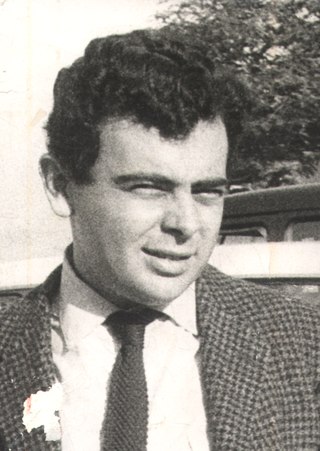
Glauber de Andrade Rocha was a Brazilian film director, actor and screenwriter. He was one of the most influential moviemakers of Brazilian cinema and a key figure of Cinema Novo. His films Black God, White Devil and Entranced Earth are often considered to be two of the greatest achievements in Brazilian cinematic history, being selected by Abraccine as, respectively, the second and fifth best Brazilian films of all-time. Rocha also the distinction of having the most films on Abraccine's list: 5 films.

João Manuel Relvas Leopoldo Botelho is a Portuguese film director.

The Cinema of Portugal started with the birth of the medium in the late 19th century. Cinema was introduced in Portugal in 1896 with the screening of foreign films and the first Portuguese film was Saída do Pessoal Operário da Fábrica Confiança, made in the same year. The first movie theater opened in 1904 and the first scripted Portuguese film was O Rapto de Uma Actriz (1907). The first all-talking sound film, A Severa, was made in 1931. Starting in 1933, with A Canção de Lisboa, the Golden Age would last the next two decades, with films such as O Pátio das Cantigas (1942) and A Menina da Rádio (1944). Aniki-Bóbó (1942), Manoel de Oliveira's first feature film, marked a milestone, with a realist style predating Italian neorealism by a few years. In the 1950s the industry stagnated. The early 1960s saw the birth of the Cinema Novo movement, showing realism in film, in the vein of Italian neorealism and the French New Wave, with films like Dom Roberto (1962) and Os Verdes Anos (1963). The movement became particularly relevant after the Carnation Revolution of 1974. In 1989, João César Monteiro's Recordações da Casa Amarela won the Silver Lion at the Venice Film Festival and in 2009, João Salaviza's Arena won the Short Film Palme d'Or at the Cannes Film Festival. Several other Portuguese films have been in competition for major film awards like the Palme d'Or and the Golden Bear. João Sete Sete (2006) was the first Portuguese animated feature film. Portuguese cinema is significantly supported by the State, with the government's Instituto do Cinema e do Audiovisual giving films financial support.

Tizuka Yamasaki is a Brazilian film director.

Brazilian cinema was introduced early in the 20th century but took some time to consolidate itself as a popular form of entertainment. The film industry of Brazil has gone through periods of ups and downs, a reflection of its dependency on state funding and incentives.

Film censorship is the censorship of motion pictures, either through the excising of certain frames or scenes, or outright banning of films in their entirety. Film censorship typically occurs as a result of political or moral objections to a film's content; controversial content subject to censorship include the depiction of graphic violence, sexual situations, or racial themes. Censorship standards vary widely by country, and can vary within an individual country over time.
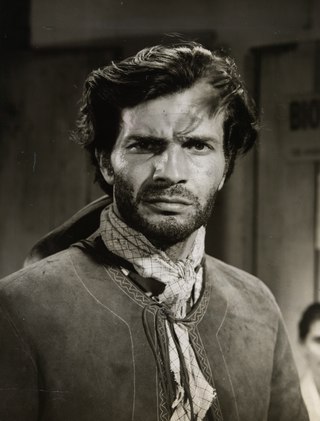
Tarcísio Pereira de Magalhães Sobrinho, known professionally as Tarcísio Meira, was a Brazilian actor.
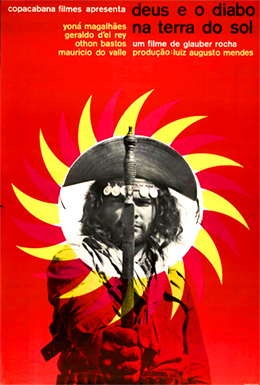
Black God, White Devil is a 1964 Brazilian Western adventure film directed and written by Glauber Rocha, and starring Othon Bastos, Maurício do Valle, Yoná Magalhães, and Geraldo Del Rey.

Antonio das Mortes is a 1969 Brazilian western film directed by Glauber Rocha. It is often cited as the last installment of Rocha's film trilogy, preceded by Black God, White Devil and Entranced Earth. It features return of the character Antonio das Mortes, now as the protagonist, again played by Maurício do Valle. The original title is a reference to the tale of Saint George and the Dragon.

Entranced Earth is a 1967 Brazilian Cinema Novo drama film directed by Glauber Rocha. It was shot in Parque Lage and at the Municipal Theatre of Rio de Janeiro. The film is an allegory for the history of Brazil in the period 1960–1966.
Maurício do Valle was a Brazilian film actor. He appeared in 70 films between 1952 and 1994. He is also known for his roles in several Brazilian TV series, such as Rede Globo's Roque Santeiro (1985), and even for his role of secondary actor in the series Os Trapalhões, as well as in some films of this group.

Bete Mendes is a Brazilian actress and politician.
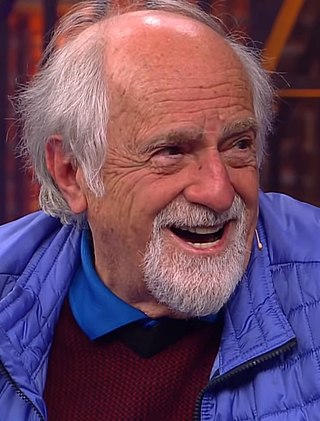
Ary Beira Fontoura is a Brazilian actor, writer, director, poet, blogger and TV-presenter. He was born in Curitiba, Paraná.

Antonio Ney Latorraca is a Brazilian actor.

Events in the year 1952 in Brazil.
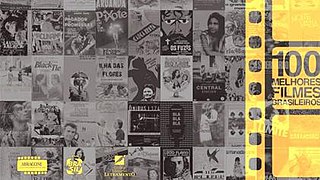
In 2015, the Brazilian Film Critics Association (Abraccine) published a list with the 100 best Brazilian films ever according to the votes of its members. This poll was the basis for a book named The 100 Best Brazilian Films, published in 2016. The idea of the ranking and the book was suggested by publisher Letramento, with whom Abraccine and television network Canal Brasil co-released the book. The ranking was done based on individual lists done by Abraccine's 100 critics, who initially mentioned 379 films. The full list was first made available to the public on 26 November 2015, and the book was released on 1 September 2016.
Edson Secco is a Brazilian composer, musician and sound designer.
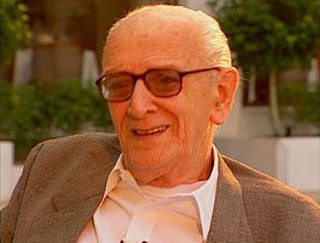
Mário Lago OMC was a Brazilian lawyer, poet, broadcaster, composer and actor.
Manuel Carvalheiro was a Portuguese filmmaker, documentary filmmaker, screenwriter, independent film producer, essayist, columnist and film critic. He was the first Portuguese film theorist.
Gilda Rocha de Melo e Sousa, also spelled Gilda Rocha de Mello e Souza, was a Brazilian philosopher, literary critic, essayist, and university professor.
















